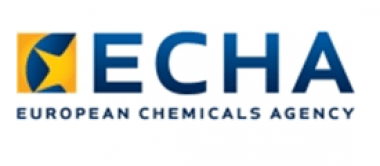New EU chemicals enforcement project to focus on products sold online
ECHA’s Enforcement Forum agreed to launch an EU-wide project to check that products sold online comply with REACH restrictions and the requirements of the Classification, Labelling and Packaging (CLP) Regulation. Its subgroup on Biocidal Products Regulation, BPRS, agreed to launch a project on labelling of biocidal products.
The Enforcement Forum including its BPR subgroup (BPRS) is a network of enforcement authorities from the EU and EEA. They are responsible for coordinating the enforcement of the REACH, CLP, PIC, POPs and the Biocidal Product Regulations with the aim of protecting our health and the environment while ensuring a level playing field for companies across the EU market.
Inspections in this REACH-EN-FORCE (REF)-13 project will take place in 2025. The objective is to check that products, such as toys, common household goods or chemicals, sold online comply with REACH restrictions. Inspectors will also check that mixtures are classified, labelled and packaged in line with CLP and that online offers include the required information about the hazards of the mixture. Inspectors may also check compliance with restrictions under the Persistent Organic Pollutants (POPs) Regulation and the Restriction of Hazardous Substances (RoHS) Directive.
The online sale of chemicals is an area of high non-compliance. In a previous Forum project (REF-8), inspectors often found that mixtures and articles sold online contained restricted hazardous substances, including those causing cancer. The project found that 78 % of controlled mixtures or articles did not fulfil the conditions of REACH restrictions.
In the upcoming project, inspectors can rely on stricter rules governing online sales, such as the Digital Services Act and General Product Safety Regulation. These new laws are expected to make enforcement stronger.
The Forum’s subgroup on Biocidal Products Regulation (BPRS), agreed that the next major enforcement project on biocides (BEF-3) will focus on controlling the correctness of product labels for biocidal products. Inspectors will check that the information on the labelling of biocides corresponds to that what has been authorised and included in the Summary of Product Characteristics. Inspectors may also check the presence and quality of information in the Safety Data Sheets, where it is required for biocidal products.
Both REF-13 and BEF-3 projects will be prepared in 2024, inspections are planned for 2025 and reports are expected to be published in 2026.
During the meeting, the Forum members elected a new chair and vice chair. Henrik Hedlund (SE) will start as the Forum chair and Katja vom Hofe (DE) and Maria Orphanou (CY) will be the vice chairs as of 21 June 2023. Its biocides subgroup elected Helmut de Vos (BE) as chair and Jenny Karlsson (SE) and Eugen Anwander (AT) as vice chairs.
European Chemicals Agency









